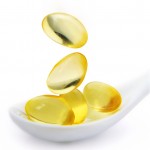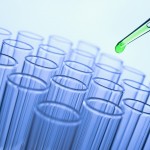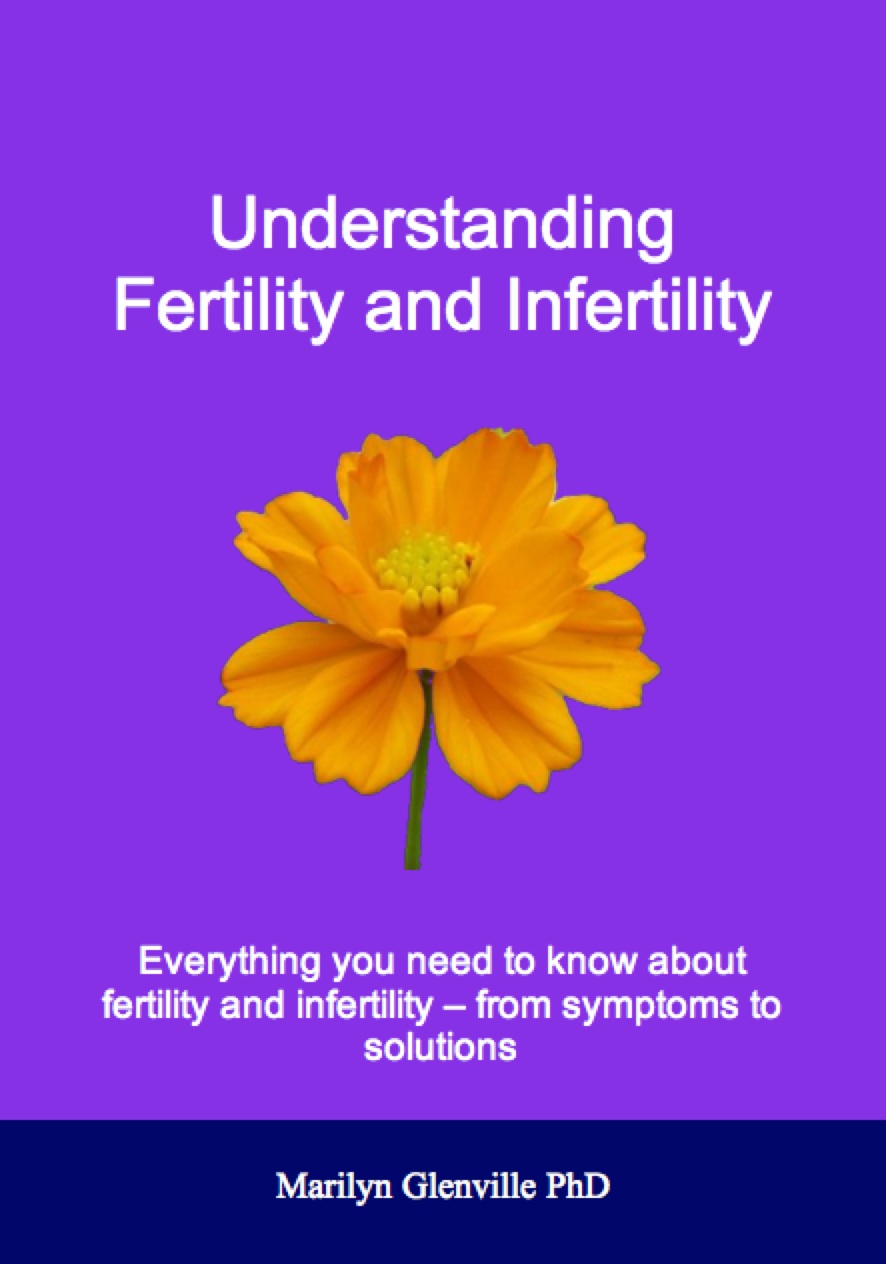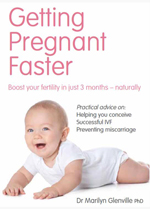There are a number of tests available that are extremely useful and are well worth considering. These tests can give you invaluable insights into understanding what is going on in your body at the moment and can tell you what vitamin and mineral deficiencies and heavy toxic metal excesses you may have. They can let you know what your general condition is and how well your digestive system is functioning and then explain what action you need to take to rectify any imbalances the results may reveal. The analysis of these results lets you know what supplements you need to take in order to bring your body back into balance and into optimum health. This is also designed to help prevent these problems from recurring in the future. You would then be re-tested after three months to monitor your progress and to adjust the supplement programme accordingly.
Fertility Mineral Deficiency Test with Supplement Programme (hair)
Find out what the mineral and heavy toxic levels are in your body
This test measures the deficiencies and excess levels of 12 different minerals (including calcium, chromium, cobalt, copper, iron, magnesium, manganese, phosphorus, potassium, selenium, sodium and zinc) and 6 heavy toxic metals (including aluminium, arsenic, cadmium, lead, mercury and nickel) that may be present in your body. Find out more – Fertility Mineral Deficiency Test with Supplement Programme (hair)
Online Personalised Supplement Assessment Programme
Discover what vitamins and minerals you need and should be taking
The analysis of this comprehensive questionnaire will give you a three monthly supplement programme to help balance any vitamin and mineral deficiencies you may have. Find out more – Online Personalised Supplement Assessment Programme
Female Hormone Test (saliva)
A total of eleven saliva samples are collected at home at specific times across one cycle, and sent to the lab for analysis. This simple test will chart the level of the hormones oestrogen and progesterone across the month, to work out a pattern that may reveal:
- early ovulation
- anovulation (no ovulation)
- problems with the phasing of the cycles, such as a short luteal phase (second half of the cycle)
- problems with maintaining progesterone levels
- high levels of testosterone
This test can be done even if you have irregular cycles. Find out more – Female Hormone Test (saliva)
Vitamin D Deficiency Test (at home blood finger prick)
With all the news in the press about the benefits of having good levels of vitamin D e.g. prevention of cancer, especially breast cancer, heart disease, Type 2 diabetes and osteoporosis it is important that you know whether or not you are lacking in this vital vitamin.
There is an increasing wealth of research linking low levels of this vitamin with infertility and immunological problems. It’s thought that Vitamin D plays a role in helping the body to maintain a pregnancy. By making mice deficient in vitamin D they can actually make them infertile. So if you’ve had a miscarriage or implantation is a problem, it is recommended that you check your level of vitamin D. Having an optimum level of vitamin D is also crucial for men as it has been associated with sperm motility and having a good amount of normal sperm. To find out whether you are deficient in Vitamin D Deficiency Test (at home blood finger prick).
Omega 3 Deficiency Test (at home blood finger prick)
If you want to find out if you are getting enough Omega 3 fatty acids from your diet and whether you have the correct balance of essential fatty acids.
Fish oil has also been shown to help prevent blood from clotting inappropriately so it can be beneficial to women in whom recurrent miscarriages have been linked to a clotting problem. The Omega 3 oils also control inflammation. If you want to find out if you are getting enough Omega 3 fatty acids from your diet and whether you have the correct balance of Omega 3 to Omega 6 essential fatty acids please click Omega 3 Deficiency Test (at home blood finger prick).
Infection Screen (urine)
Find out if an infection is stopping you conceiving or staying pregnant
Infections in the vagina may have a serious impact on your ability to conceive and to hold on to a pregnancy. These infections may have existed for many years with low activity and often present no symptoms. If you are having problems conceiving or have suffered from successive miscarriage or IVF failure or if you have a persistent vaginal secretion it may be worth considering having an Infection Screen.
Infections in the prostate gland may affect both the quantity and quality of the sperm, so an infection screen is advisable, especially if everything else has been ruled out.
It is advisable to get this organised at a specialist clinic like my one as the NHS infection screens can be very basic. Find out more – Infection Screen (urine)
Semen Analysis (semen)
A comprehensive test to assess both quality and quantity of sperm
A good semen analysis not only assesses the sperm for quantity and motility but quality and is best done in a specialist clinic as the quality of the results can vary considerably.
A man can now have a comprehensive semen analysis to check for sperm count, motility, abnormal sperm, agglutination (sperm clumping) and sperm antibodies. It is then possible to use nutritional interventions to improve the semen analysis. Find out more – Semen Analysis
Sperm DNA Fragmentation Test (semen)
Find out if you have healthy sperm DNA
The success of a viable embryo depends to a certain extent on the genetic DNA of the egg and the sperm. The Sperm DNA Fragmentation Test is designed to check whether the DNA of the sperm is liable to fragmentation (the breaking down of some of the sperms DNA strands). There is always a small amount of DNA fragmentation in sperm but this can be overcome or repaired by the egg after fertilisation. However if the fragmentation is beyond a certain level, the repair process cannot compensate enough for the damage and normal embryonic development will stop, meaning that the pregnancy can’t continue.
A high level of fragmentation in sperm cells represents a cause of male infertility that a conventional semen analysis cannot detect. So a man may be told that his sperm is normal in terms of the count, motility and morphology but could have high levels of sperm DNA fragmentation. Results from the medical literature have confirmed that regardless of whether you are trying to conceive naturally or with the help of IUI or IVF, a high level of sperm DNA fragmentation will seriously compromise any possibility of a successful pregnancy. Find out more – Sperm DNA Fragmentation Test (semen)
Ovarian Reserve Test (blood)
Find out your egg store
This test measures AMH (Anti-Mullerian Hormone) which is a hormone made by your ovaries and helps your eggs mature each month. It is also important in the production of the female sex hormone oestrogen. The level of AMH indicates how well your ovaries are functioning and represents the quantity of your egg store. The lower the level of AMH the lower the fertility level is likely to be. This is a useful test also if you are thinking about doing IVF as a low levels has been shown in clinical trials to predict poor response to IVF treatment. In order for IVF or ICSI to work, your ovaries have to respond to the drug stimulation by recruiting a group of follicles, so if AMH is low then it is more than likely that the response will be poor.Measuring AMH is also useful for women with suspected polycystic ovary syndrome (PCOS) as the level is normally very high due to the greater number of follicles on the ovaries.This test can be done at any time of the cycle, even if you are not having a cycle. Click Ovarian Reserve Test (blood).
Immune Problems (blood)
Is your immune system stopping you getting and staying pregnant?
Immune problems may account for a large number of cases of unexplained infertility and pregnancy loss. Problems with the immune system occur when your body’s normal immune response to a pregnancy goes wrong. Your body naturally produces antibodies to fight off infection or foreign substances but during pregnancy your body should respond differently to an embryo and should form a protective blanket around it. Because half the baby’s DNA is not yours (it belongs to your partner or sperm donor), your immune system has, in effect, to quieten down in order to stay pregnant and not reject the baby. In some women, however, instead of protecting the embryo their immune system attacks it as if it were an infection or invading organism. Find out more – Immune Problems (blood)
There are a number of tests that can pinpoint whether this is a problem e.g. Natural Killer Cells and Antiphospholipid Antibodies
Natural Killer Cells (blood)
Natural killer cells are important. They make up 50 per cent of all white blood cells and are needed to control rapidly dividing cells like cancer. The theory is that some women produce too many natural killer cells which will aggressively attack any cells that grow and divide, offering protection against cancer but making pregnancy impossible. Find out more – Natural Killer Cells (blood)
Antiphospholipid Antibodies (blood)
Antiphospholipid antibodies (APAs) are the most common kind of abnormal immune system problem. Up to 15 per cent of women with a history of recurrent miscarriage have this syndrome – and a 90 per cent miscarriage rate, without treatment. And APAs can also prevent implantation, preventing pregnancy in the first place. Phospholipids are a sort of glue needed in early pregnancy. Some women, however, produce APA blood-clotting antibodies which attack cells that build the placenta and increase the risk of miscarriage.
Anticoagulants help to prevent clotting caused by APA and both low-dose aspirin and heparin (a blood thinner) are often prescribed. Supplements of omega 3 essential fats, vitamins C and E and garlic also help to thin the blood so you should not take these if you are on blood thinners. NB. Please note some of the recommended tests are only available in conjunction with a consultation at one of my clinics. Find out more – Antiphospholipid Antibodies (blood)
After three months you would then have a re-test in order to monitor your progress and adjust your supplement programme according to your new condition.
If you need help in obtaining any of the supplements, herbs or tests mentioned, click, Infertility options at The Natural Health Practice. They can supply all of them for you online or if you prefer to talk to somebody first you can also order by mail order on the telephone. The products supplied by this company are always of the highest quality.















